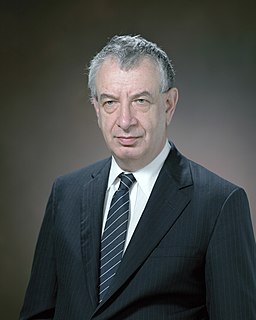A Quote by Noam Chomsky
[Camillo] Berneri proposed that the anarchists should link up with the effort of Northern Africa to overthrow the Spanish government, carry out land reform, attract the base of the Moorish army, and see if they could undermine [Francisco] Franco's army through political warfare in Northern Africa combined with guerrilla warfare in Spain. Historians laughed at that, but I don't think they should have. This was the kind of war that might have succeeded in stopping Spanish fascism.
Quote Topics
Africa
Army
Attract
Base
Carry
Combined
Could
Effort
Fascism
Francisco
Franco
Government
Guerrilla
Guerrilla Warfare
Historians
Kind
Land
Laughed
Link
Might
Northern
Out
Overthrow
Political
Proposed
Reform
See
Should
Should Have
Spain
Spanish
Stopping
Succeeded
Think
Through
Undermine
Up
War
Warfare
Related Quotes
There's an interesting question, whether the anarchists had alternatives [in Spain]. If they did tend to support the government that had been destroyed, what were the alternatives? There was actually a proposal by Camillo Berneri, an Italian anarchist who was in Spain at the time, which is not a crazy notion in my opinion. He opposed participation in government and was against the formation of an army, meaning a major army to fight [Francisco] Franco.
Some 2,800 Americans went to Spain [during the Spanish Civil War], and it was, by far, the largest number of Americans before or since who've ever joined somebody else's civil war. I think they were primarily people who were deeply alarmed by the menace of fascism. They saw this on the horizon. I quote one volunteer, Maury Colow of New York, who said, "for us it was never Franco, it was always Hitler."
I think in many ways, the Spanish Civil War was the first battle of World War II. After all, where else in the world at this point did you have Americans in uniform who were being bombed by Nazi planes four years before the U.S. entered World War II? Hitler and Mussolini jumped in on the side of Francisco Franco and his Spanish nationalists, sent them vast amounts of military aid, airplanes, tanks - and Mussolini sent 80,000 ground troops as well - because they wanted a sympathetic ally in power. So I think it really was the opening act of World War II.
































